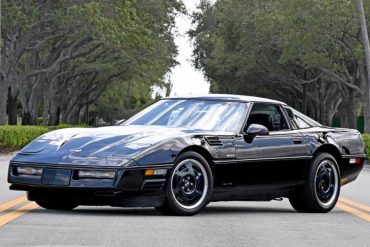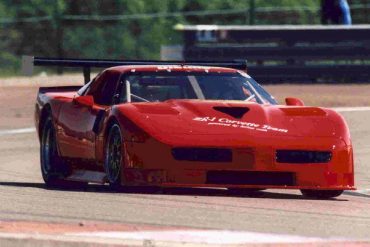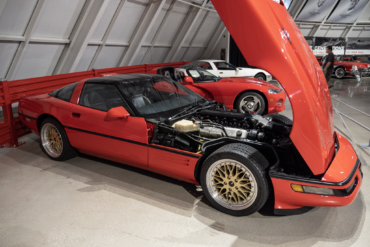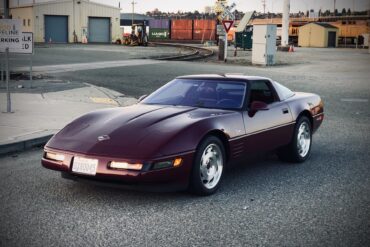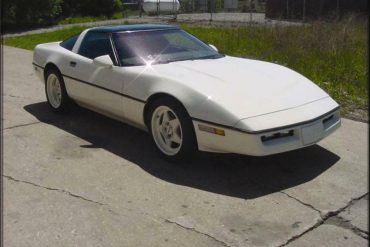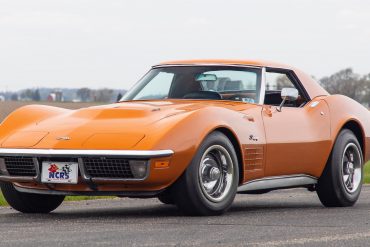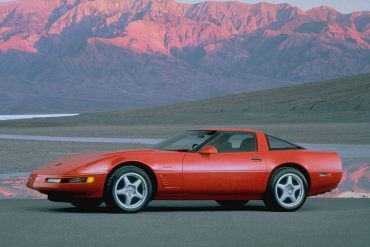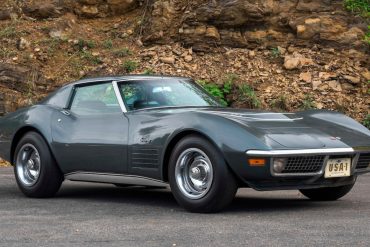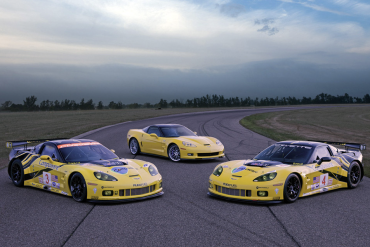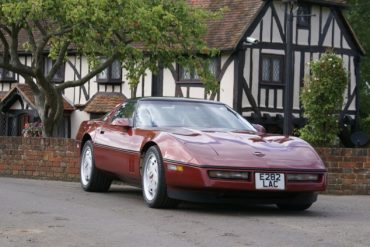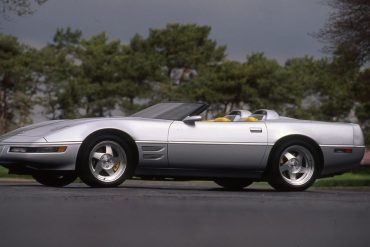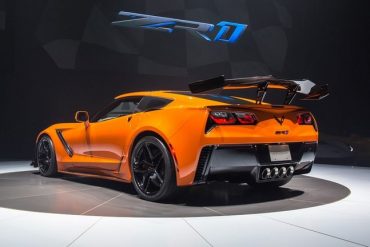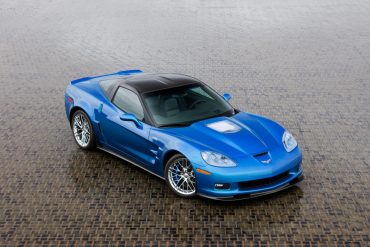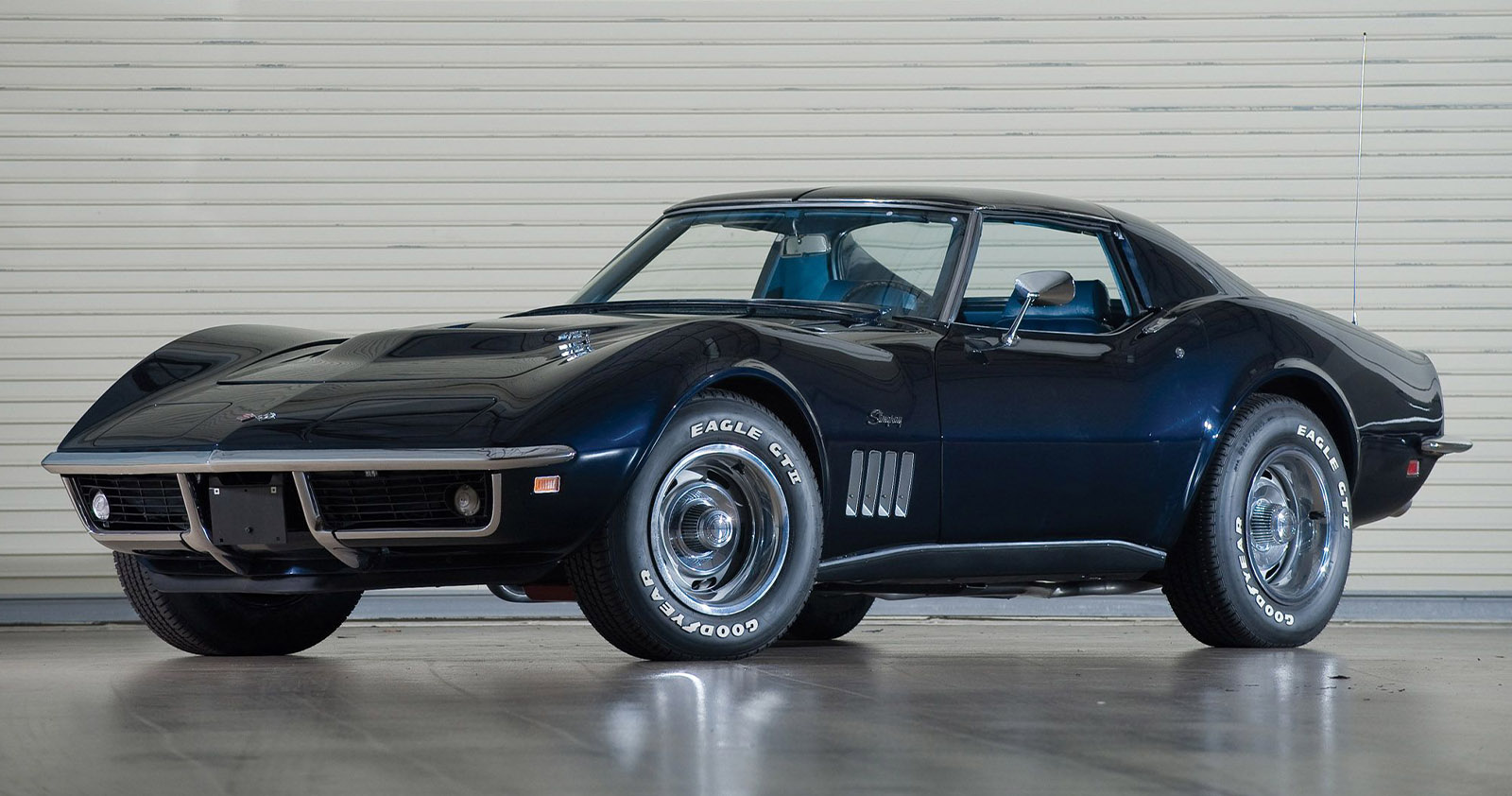This vehicle pioneered the advantages of “Active Suspension” and had GTP Corvette race car technology. Built at the Bowling Green Plant, this vehicle was developed as a prototype for a limited edition run in the 1990 model year. Chevrolet ordered it to be built with a complex, high-tech active suspension that includes an Eaton hydraulic pump and Moog actuators. This car and the technology inside of it led to the Active Handling system GM released in 1996.
This car was created by Doug Rippie. His claim to fame was the Corvette Challenge Series. Rippie loved racing Corvettes in the US, but, his life-long dream was to take on the world-class marques at Le Mans. So, when Chevy introduced the C4 ZR1 the opportunity was opened up. Via his collaboration with MerCruiser and Lotus Engineering, all with Chevy’s blessing, the "Black Widow" program created special street and race versions of the LT5 engine. This engine made 525hp.
The Corvette team decided to one-up the Viper with four extra cylinders, they decided on one of Ryan Falconer’s stunning, all aluminum, 600-cubic-inch, 683hp, 680 lb-ft V-12 racing engines. The biggest challenge was the fact that the all-aluminum V-12 engine was 8.8-inches longer than the production Corvette engine. So the front end of the ZR-1 would have to be stretched 8 inches. This test car was named Conan, after his raw, beastlike charisma.
In 1993 just 448 ZR-1 Corvettes were produced and only 240 of them were 40th Anniversary Edition cars. The 40th Anniversary Package consists of a deep and glossy Ruby Red exterior finish over a matching Ruby Red interior with leather adjustable sport seats. A Corvette with both of these highly desirable packages is rare and special. At the heart of the ZR-1 is the 405-horsepower LT5 V8 engine mated to a 6-speed manual transmission.
In the late 80s, Chevy was developing what some dubbed a ‘Super Vette.’ But the 1989 debut of the Dodge Viper sent GM engineers on a new path to develop a ‘Viper-Killer.’ It started with a factory test mule and the experiment was to see how a ZR-1 would perform if given more power and less weight. It was so fast it was called "Snake Skinnner", for it's ability to beat the Viper and Cobra.
Finally in 1971, both the ZR1 and ZR2 packages were offered side by side as initially intended. The solid lifter, 350 cubic-inch LT-1 found under the hood of the ZR1 featured a ‘178’ high-performance camshaft and a 780 CFM Holley four-barrel carburetor, which resided atop a specialized aluminum intake. The LT-1 featured a reduced compression ratio of 9.0:1 for the 1971 production year, relative to 11.0:1 specified the year prior.
The C4 ZR-1 Corvette, even some 30 years after its initial year of production, carries indisputable performance merit, the likes of which few can deny. In fact, the ZR-1 is often cited as the car which helped fend off threats, both foreign and domestic in origin, to the Corvette's elite performance car status. However, after only 6,939 ZR-1 Corvettes were built, and 6 years of production had passed, the program was terminated, falling victim to decisions regarding pricing.
Did you know that the earliest ZR1 Corvettes came into existence long before any of these later iterations? If not, then take a few minutes to acquaint yourself with one the rarest small-block production Corvettes of all time - the 1970-1972 Corvette ZR1. From 1970 to 1972, Chevrolet offered the ZR1 Special Engine Package, which featured a small-block LT1 engine.
The C6.R ZR1 GT2, if you were to use its full name, was the model used in the last four years before the Corvette C7.R was introduced, and had a slick sequential manual operated by paddles that was combined with the rear differential to create a rear transaxle. This style of transaxle eventually made it into the road-going Corvette, especially the Grand Sport and ZR1 of the C7 generation.
This is no ordinary C4 coupe, but a GM Engineering test mule with VIN plate EX4607 proudly displayed in the windscreen, built in 1986 to test all the new-for-1988 features. This actual car must have spent weeks pounding round the General Motors Proving Ground at Milford, Michigan with longer runs on the road, testing all the changes for a year which saw the C4 suspension, steering and brakes vastly improved.
Chevrolet Corvette ZR-1 Spyder prototype, 1991, by ASC. An experimental styling prototype ordered by Don Runkle, Chevrolet’s chief engineer, to see how far the ZR-1 might be pushed in convertible form. The windshield was chopped in half and the seats were mounted directly to the floorpan. The black example in the National Corvette Museum was originally painted Sebring Silver with a Neutrino Yellow interior.
How do you beat a slew of Fox-Body 5.0 Mustangs that seemingly dominated the roads in the late '80s? You take a 454 cu.-in. big-block engine and stuff into a C4 Corvette and call it "Big Doggie". An experimental vehicle used to determine how to convert from a small block to a big block. Its 454 big block V8 along with its orange paint make this high horsepower engineering study a one-of-a-kind standout in Corvette history. The car had as much HP as the '90 ZR-1 did and it was named "ZR-2" or "Big Doggie". Old dog, new tricks joke?
The Corvette ZR1 features an LT5 6.2L V-8 supercharged engine which dramatically advances the supercharging technologies first introduced in the 2009 sixth-generation Corvette ZR1 and continued with the 2015 seventh-generation Z06 Corvette. The engine, which is officially rated with an SAE-certified 755 horsepower (563 kW) and 715 lb-ft of torque (969Nm), establishes an entirely new benchmark in Chevrolet performance.
The ZR-1 returned with the 1990 Corvette lineup after an eighteen year hiatus. This time, it featured a special LT5 engine that had been developed by Lotus (which, at the time, had been a subsidiary of General Motors.) The LT5 engine featured an all-aluminum block, four overhead camshafts, and 32 valves. It also featured an air management system which enabled the car to maintain proper operation while closing off half of its fuel injection system.


